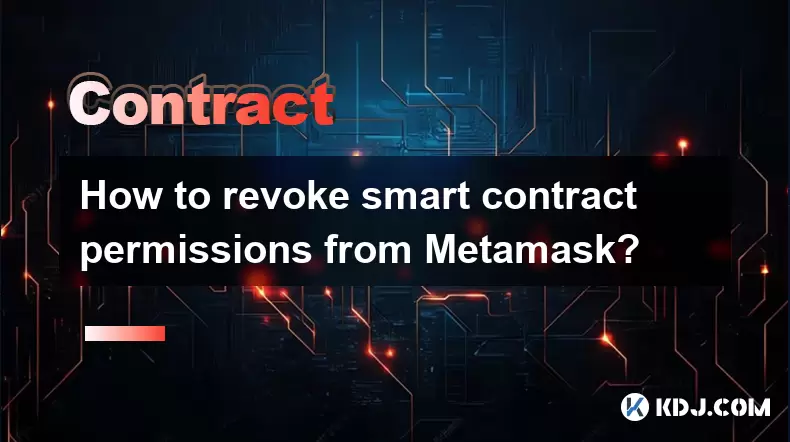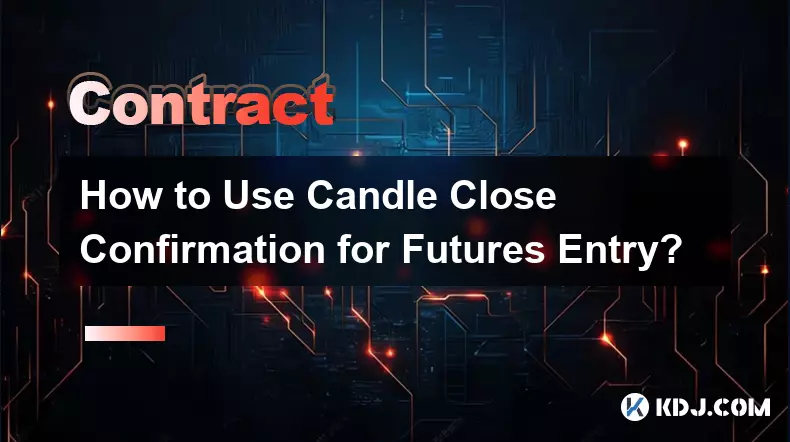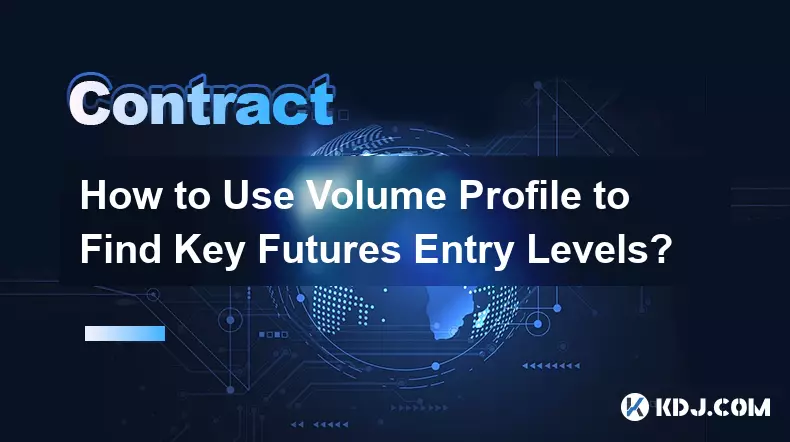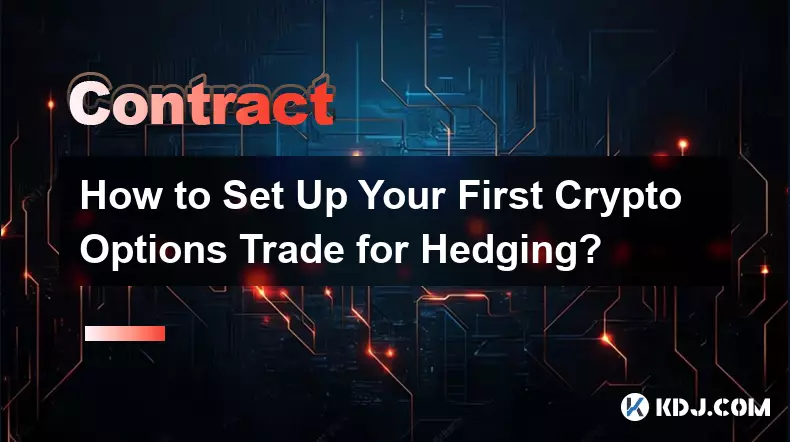-
 bitcoin
bitcoin $87959.907984 USD
1.34% -
 ethereum
ethereum $2920.497338 USD
3.04% -
 tether
tether $0.999775 USD
0.00% -
 xrp
xrp $2.237324 USD
8.12% -
 bnb
bnb $860.243768 USD
0.90% -
 solana
solana $138.089498 USD
5.43% -
 usd-coin
usd-coin $0.999807 USD
0.01% -
 tron
tron $0.272801 USD
-1.53% -
 dogecoin
dogecoin $0.150904 USD
2.96% -
 cardano
cardano $0.421635 USD
1.97% -
 hyperliquid
hyperliquid $32.152445 USD
2.23% -
 bitcoin-cash
bitcoin-cash $533.301069 USD
-1.94% -
 chainlink
chainlink $12.953417 USD
2.68% -
 unus-sed-leo
unus-sed-leo $9.535951 USD
0.73% -
 zcash
zcash $521.483386 USD
-2.87%
How to revoke smart contract permissions from Metamask?
Revoking unused smart contract permissions in Metamask enhances wallet security by preventing unauthorized access to your tokens.
Jul 21, 2025 at 12:42 am

Understanding Smart Contract Permissions in Metamask
When interacting with decentralized applications (dApps) using Metamask, users often grant smart contracts permission to access their wallet funds. These permissions allow the contract to spend a specific amount of tokens on your behalf, such as approving a token transfer for a swap or staking function. However, revoking these permissions is crucial for maintaining control over your assets and reducing potential risks from malicious or outdated contracts.
Smart contract permissions are typically managed through token approvals. When you approve a contract, you're essentially allowing it to withdraw tokens from your wallet up to a specified limit. If not revoked, these approvals remain active indefinitely. This means that even if you no longer use a particular dApp, its associated contract may still have access to your funds.
Why You Should Revoke Unused Smart Contract Permissions
The ability to revoke smart contract permissions is essential for wallet security. Many users overlook this step after completing transactions, leaving open doors for unauthorized access. Some contracts might become compromised or abandoned by developers, which could expose your tokens to theft or misuse. By revoking unnecessary approvals, you ensure that only trusted and currently used contracts can interact with your wallet.
Additionally, some platforms may exploit high approval limits by initiating unexpected token transfers without further user confirmation. This practice, sometimes referred to as 'infinite approvals,' allows contracts to move large amounts of tokens without requiring additional interaction from the user. Therefore, understanding how to revoke these permissions becomes a proactive measure in managing your digital asset security.
How to Check Current Smart Contract Approvals
Before revoking any permissions, it's important to review what approvals are currently active in your Metamask wallet. Unfortunately, Metamask does not provide a built-in feature to view or manage these approvals directly within the wallet interface. To check them, you’ll need to use third-party tools like Revoke.cash or blockchain explorers such as Etherscan.
Using Revoke.cash, you can connect your wallet and see a list of all active token approvals associated with your address. The tool will show which contracts have been granted access and how much they are allowed to spend. Alternatively, you can manually check each token on Etherscan by navigating to the token’s contract page, selecting the 'Read Contract' tab, and then querying the 'allowance' function with your wallet address and the spender contract address.
Step-by-Step Guide to Revoking Permissions via Revoke.cash
To begin revoking permissions, visit Revoke.cash and connect your Metamask wallet. Once connected, the platform will display a list of all token approvals linked to your account. Each entry includes the token name, the contract address, and the approved amount.
To revoke a specific approval:
- Locate the contract you want to remove
- Click the “Revoke” button next to it
- Confirm the transaction in Metamask
Each revocation requires a small gas fee since it involves sending a transaction to the Ethereum network (or another supported chain). After the transaction is confirmed, the contract will no longer be able to access your tokens beyond what has already been spent.
If you're dealing with multiple contracts, Revoke.cash also offers a batch revocation feature, allowing you to revoke several approvals at once, which helps reduce both time and gas costs.
Revoking Permissions Manually Using Etherscan
For those who prefer a more hands-on approach, you can manually revoke permissions using Etherscan. Start by visiting the token’s contract page. For example, if you want to revoke a USDT approval, search for the USDT contract address on Etherscan.
Once on the contract page:
- Navigate to the 'Write Contract' tab
- Connect your wallet
- Find the 'approve' function
- Enter the contract address you want to revoke as the '_spender'
- Set the '_value' to 0
This action effectively resets the approval limit to zero, preventing the contract from spending any more tokens on your behalf. Confirm the transaction in Metamask, and wait for it to be processed on the blockchain.
Keep in mind that this method requires knowing the exact contract addresses involved and may be less intuitive than using Revoke.cash. However, it gives you full control over the process and works for any Ethereum-based network.
Frequently Asked Questions
Q: Can I revoke permissions for multiple tokens at once?Yes, using platforms like Revoke.cash allows you to batch revoke approvals across different tokens and contracts simultaneously, saving both time and gas fees.
Q: What happens if I revoke a contract’s approval while it's still in use?Revoking an active approval may prevent certain functions from working, such as ongoing staking rewards or liquidity pool participation. Always ensure that revoking won’t interfere with current operations.
Q: Is it safe to keep unused approvals active?No, unused approvals pose a potential security risk. If a contract is compromised or abandoned, it could lead to unauthorized fund transfers. It’s best to revoke any permissions you no longer need.
Q: Does revoking a smart contract approval affect my NFTs?No, revoking token approvals does not impact NFT ownership or permissions. NFT approvals are handled separately and require different tools or methods to revoke.
Disclaimer:info@kdj.com
The information provided is not trading advice. kdj.com does not assume any responsibility for any investments made based on the information provided in this article. Cryptocurrencies are highly volatile and it is highly recommended that you invest with caution after thorough research!
If you believe that the content used on this website infringes your copyright, please contact us immediately (info@kdj.com) and we will delete it promptly.
- Cost-Averaging into the Meme Supercycle: SPX6900 Lessons Pave Way for Maxi Doge
- 2026-02-05 19:20:02
- US Government's Bitcoin Stance Steadies Crypto's Wild Ride Amid Market Volatility
- 2026-02-05 19:05:01
- Bear Market Scenarios Unpacked: Analyst PlanB's Insights and Market Outlook
- 2026-02-05 19:00:02
- ZKsync Price Manipulation Probe on Upbit Sparks Regulatory Scrutiny in South Korea
- 2026-02-05 19:00:02
- FxWirePro, Trending Coins, and CoinGecko Insights: Navigating the Crypto Landscape
- 2026-02-05 19:15:01
- Vanguard's Quiet Bitcoin Treasury Gambit Signals Mainstream Crypto Shift
- 2026-02-05 19:20:02
Related knowledge

How to Manage Emotions and "Revenge Trading" in Futures?
Feb 05,2026 at 12:19am
Understanding Emotional Triggers in Futures Markets1. Market volatility directly impacts psychological states, often amplifying fear or euphoria based...

How to Use Candle Close Confirmation for Futures Entry?
Feb 05,2026 at 04:20pm
Understanding Candle Close Confirmation1. A candle close confirmation occurs when the final price of a candlestick settles beyond a predefined level, ...

How to Analyze Market Sentiment Using the Fear and Greed Index?
Feb 05,2026 at 07:40am
Understanding the Fear and Greed Index1. The Fear and Greed Index is a composite metric designed to quantify prevailing emotional states among cryptoc...

How to Secure Your Futures Account with Anti-Phishing Codes?
Feb 05,2026 at 08:40pm
Understanding Anti-Phishing Codes in Crypto Futures Trading1. Anti-phishing codes are unique alphanumeric strings generated by futures exchanges to au...

How to Use Volume Profile to Find Key Futures Entry Levels?
Feb 04,2026 at 11:39pm
Understanding Volume Profile Structure1. Volume Profile displays the distribution of traded volume at specific price levels over a defined time period...

How to Set Up Your First Crypto Options Trade for Hedging?
Feb 05,2026 at 05:59pm
Market Volatility Patterns1. Price swings exceeding 15% within a 24-hour window occur regularly across major cryptocurrencies including Bitcoin and Et...

How to Manage Emotions and "Revenge Trading" in Futures?
Feb 05,2026 at 12:19am
Understanding Emotional Triggers in Futures Markets1. Market volatility directly impacts psychological states, often amplifying fear or euphoria based...

How to Use Candle Close Confirmation for Futures Entry?
Feb 05,2026 at 04:20pm
Understanding Candle Close Confirmation1. A candle close confirmation occurs when the final price of a candlestick settles beyond a predefined level, ...

How to Analyze Market Sentiment Using the Fear and Greed Index?
Feb 05,2026 at 07:40am
Understanding the Fear and Greed Index1. The Fear and Greed Index is a composite metric designed to quantify prevailing emotional states among cryptoc...

How to Secure Your Futures Account with Anti-Phishing Codes?
Feb 05,2026 at 08:40pm
Understanding Anti-Phishing Codes in Crypto Futures Trading1. Anti-phishing codes are unique alphanumeric strings generated by futures exchanges to au...

How to Use Volume Profile to Find Key Futures Entry Levels?
Feb 04,2026 at 11:39pm
Understanding Volume Profile Structure1. Volume Profile displays the distribution of traded volume at specific price levels over a defined time period...

How to Set Up Your First Crypto Options Trade for Hedging?
Feb 05,2026 at 05:59pm
Market Volatility Patterns1. Price swings exceeding 15% within a 24-hour window occur regularly across major cryptocurrencies including Bitcoin and Et...
See all articles























![KING vs PAINIFY😳 (1v1 ZONEWARS) [FORTNITE TOKEN/WAGER] KING vs PAINIFY😳 (1v1 ZONEWARS) [FORTNITE TOKEN/WAGER]](/uploads/2026/02/05/cryptocurrencies-news/videos/origin_6984035326d58_image_500_375.webp)
![2/4 [U.S. Hot Search] CIA: Xi Jinping is a paranoid | Xi Jinping’s two phone calls | Shandong’s “Internet-addicted” teenagers rebelled against tyranny | A direct attack on the Chengdu hacker national team | Why GDP must grow by 5% | The bridge under construction by the China Railway 12th Bureau collapsed | Thousands of billions of dollars spent abroad and thirty billion domestic subsidies | 2/4 [U.S. Hot Search] CIA: Xi Jinping is a paranoid | Xi Jinping’s two phone calls | Shandong’s “Internet-addicted” teenagers rebelled against tyranny | A direct attack on the Chengdu hacker national team | Why GDP must grow by 5% | The bridge under construction by the China Railway 12th Bureau collapsed | Thousands of billions of dollars spent abroad and thirty billion domestic subsidies |](/uploads/2026/02/05/cryptocurrencies-news/videos/origin_69840a757417b_image_500_375.webp)

















































